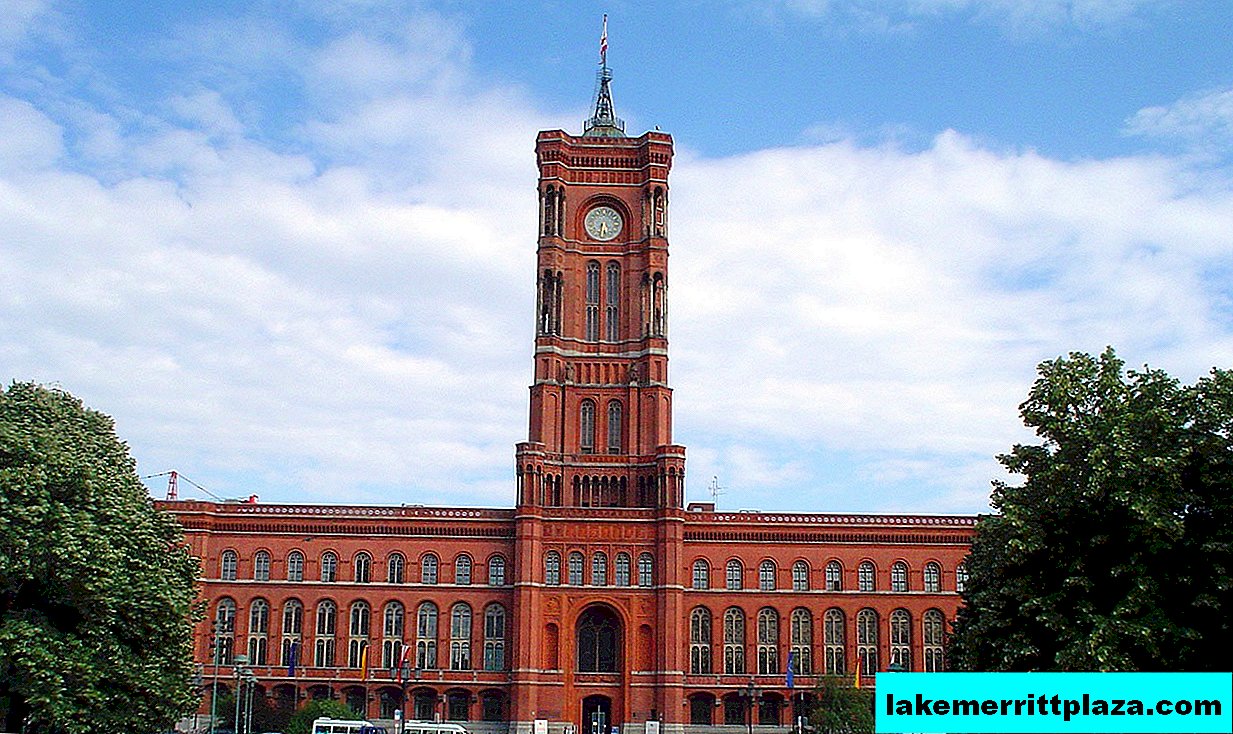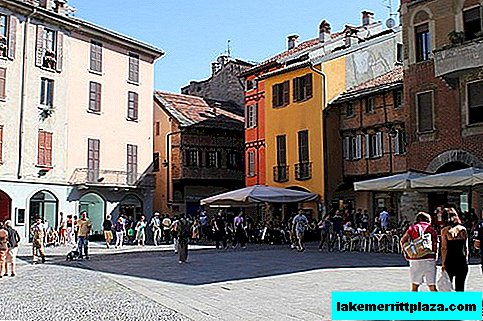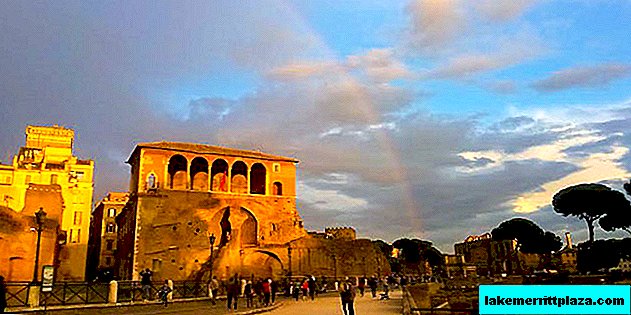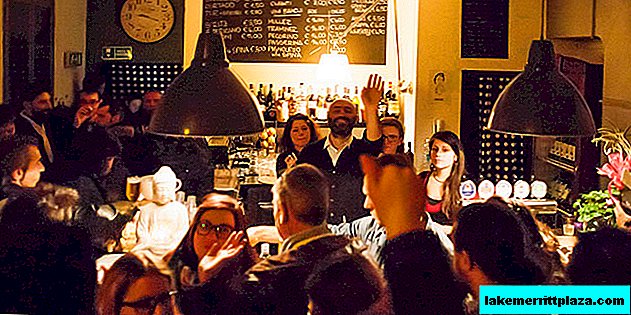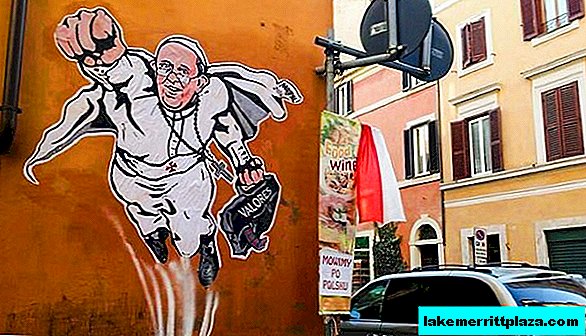Dante Alighieri (Dante Alighieri) was one of the most prominent poets and thinkers of the Middle Ages, who determined the vector of development of pan-European culture. His work played an important role in the formation of the Italian literary language.
Surprisingly, the poetry and philosophical picture of the world of this extraordinary, deeply thinking and highly sensitive person has remained relevant and interesting for over seven centuries.
Biography
Little information has been preserved about the fate of Dante Alighieri, confirmed by documentary sources. One of the first people who explored the life of the poet was an outstanding writer of the Early Renaissance, Giovanni Boccaccio. On the basis of his works and autobiographical texts of Alighieri himself, numerous scientific works of historians of subsequent eras were carried out.
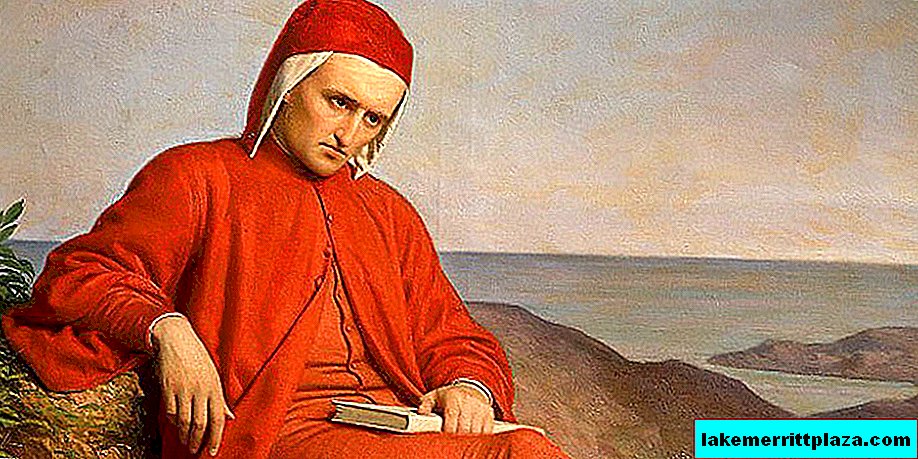
Moreover, all the vicissitudes in the fate of Alighieri, as well as the formation of his worldview, must be considered only through the prism of violent political battles unfolding in medieval Italy. At the turn of the XIII - XIV centuries it was fragmented into many small city-states and principalities of the region. Dante and his contemporaries went through a difficult period, the main features of which were the lack of unity of power and the constant confrontation between papal and imperial rule. The unremitting political unrest largely set the tragic tone of the poet’s life.
Origin
The approximate date of birth of Dante Alighieri is 1265. He was born in Florence (Firenze), one of the most advanced cities in Italy. According to legend, the ancestors of the great poet came from a noble and wealthy Roman family, and played a significant role in the formation of the Tuscan capital. Manuscripts preserved to this day indicate that Dante's great-grandfather belonged to the aristocracy and was knighted.
Education
The opinions of researchers of the poet’s biography of his relative education are extremely contradictory. According to one version, in the 80s of the XIII century, Dante was a student at the University of Bologna - the most prestigious educational institution in Europe. Alighieri’s creative heritage testifies to the high level of his enlightenment: he was familiar with the works of ancient authors and the literary creations of his contemporaries, was perfectly oriented in the natural sciences, and throughout his life he was constantly engaged in self-education, comprehending new horizons.
The main teacher and mentor of Dante, whose name is highly esteemed by the poet himself, was the Florentine writer, scientist, encyclopedist and prominent politician Brunetto Latini.
Creativity - An Early Stage
It is not known exactly when it was Alighieri who became interested in writing. Researchers of his texts argue that the formation in the work was carried out under the influence of the poems of the famous Italian poet Guittone d'Arezzo, although Dante himself, later giving an assessment of his work, denied this fact.
A special role was played by the Dolce Stil nuovo literary school, a characteristic feature of which was the singing of unearthly love for a woman and philosophical vision in the majestic image of a beloved higher divine essence. No wonder translated from Italian the name of this direction of poetry sounds like "sweet new style." Bright representatives of poetic forms unusual for that time - Guido Cavalcanti (Guido Cavalcanti) and Guido Guinizelli (Guido Guinizelli), Alighieri considered not only friends, but also the main teachers in the lyrics.
The first collection of Dante's works, consisting mainly of sonnets and a small fragment of a prosaic text, was published around 1283 - 1293. The book was written in Italian and was called "New Life" (La Vita Nuova). Alighieri's debut works contain all the elements of Dolce Nuovo Style:
- grace of verbal forms;
- inspiration of love feeling;
- philosophical implication;
- mysticism and complexity of images;
- rhetoric.
Alighieri himself admitted that his birth as a poet was due to a deep and reverent feeling for a woman, whose image he carefully kept in his soul throughout his life. The name of his beautiful lover, Beatrice, Dante immortalized, making him almost a household word.
Love and family
Beatrice Portinari was the only and true muse of the poet. Alighieri’s fiery feelings, close to the deification of his object of passion, became a textbook example of deep platonic love. Unfortunately, there is little documentary evidence revealing the veil of secrecy of the identity of this woman. According to Giovanni Boccaccio, Beatrice was the daughter of a famous Florentine banker who lived next door to the Alighieri family.
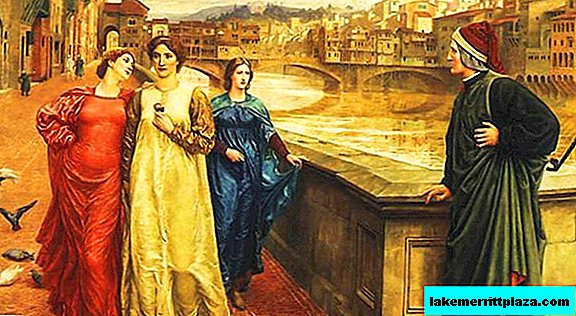
The second time they met and talked on one of the streets of Florence, years later, when the young beauty was already a married lady, and Dante's love for her was inflamed with greater force. Beatrice died early, at the age of 24-25, and this event became a real tragedy for the young man, almost ending in death for him.
1-2 years after the death of her lover, Alighieri married Gemma da Manetto Donati, daughter of an influential politician. It was a marriage union, concluded by calculation, quite typical for that era. The couple had two sons and a daughter. Most of the life of the couple were separated. It is noteworthy that Alighieri did not mention the name of his wife in any of his works.
Political participation
Following the family tradition, Dante Alighieri was an active participant in events in the political arena of Florence. The first mention of him as a statesman dates back to 1296 - 1297 years. Not indifferent to the fate of his native land, Dante often nominated for honorable posts, participated in lawmaking and carried out difficult diplomatic missions. In 1300 - 1301 he was elected to the College of Priorities (a government similar to the modern city government).
A fierce struggle unfolded between two warring political forces: the Guelfs (guelfi), who advocated the unity of the country and the dominant influence of the pontiff, and the Ghibellines (ghibellini), who supported the power of the Holy Roman Emperor.
Later, in the party of supporters of the pope that dominated the city, a split occurred: it was divided into blacks and whites. The former still supported the clergy, while the latter advocated the independence of the Florentine Republic (Repubblica fiorentina) from the decrees of the higher clergy and counted on strengthening the monarchy. Alighieri belonged to the "white" Guelph faction, which remained the ruling force until the military coup of 1302.
Wanderings
During the almost 20-year exile, until his death, Dante Alighieri traveled to different parts of Italy and did not give up hope of returning to his homeland, but all his attempts were in vain. Full of anxious feelings, he continued to create his great works, even in the conditions of a wandering existence. The poet lived in Verona, under the patronage of the condottier, Bartolomeo I della Scala, later moved to Bologna, Lunigiana. In 1309 - 1310, Alighieri found refuge in Paris, but after a short period left France.
At this time, the German king Henry VII undertook a campaign against Italy, obsessed with the idea of restoring complete imperial power there. He pardoned all the exiles of the opposing parties and tried in every way to reconcile the rival aristocratic clans. Dante, who saw salvation for Italy in a strong monarchy, was imbued with another hope to return to Florence. However, Henry VII died in 1313 (many historians are inclined to believe that he was poisoned), and with the death of the emperor, the prospects of the exile weakened to regain their homeland weakened.
According to some sources, Dante suggested returning to a city dear to his heart, subject to a public renunciation of political ideals, but Aligieri, proud and faithful to his convictions, refused to undergo a humiliating procedure.
In 1315, the seignoria pronounced a second death sentence, with him the dreams of Florence were forever dispelled. In the years 1316-1317, the ruler of the city of Ravenna, Guido Novello da Polenta, took Alighieri, offering him a position at his court.
Maturity Creativity
In the works created during the period of exile, Dante acted as a researcher, literary critic, enlightener, philosopher and theologian. He wrote treatises devoted to the folk language, socio-political issues, the principles of morality of medieval society, questions about the properties of the soul and intellect. The bibliography of Alighieri's works includes the following works:
- Unfinished philosophical treatise "Feast" (Convivio), written around 1306, which set forth criticism of moral and ethical standards, and also attempted to make an in-depth analysis of poetics and linguistics;
- Unfinished Linguistic Treatise On Folk Eloquence (De vulgari eloquentia libri duo), the writing of which dates back to 1303 - 1305, representing the first in Europe research work on the origin and development of Romance languages, as well as an analysis of the literary forms contemporary to the author;
- Three-part treatise "Monarchy" (De Monarchia)written in 1312 - 1313 in the Latin language, which tells about the ideal, from the point of view of the author, socio-political system;
- The poem "Divine Comedy" (La Divina Commedia), created in the period from 1306 to 1321, is considered the pinnacle of a creative path.
The Divine Comedy
The poem "Comedy", which later received thanks to Giovanni Boccaccio the name "Divine" (ie, "magnificent"), is included in the list of the best works of world literature.
Dante worked on its creation for almost 15 years, and managed to finish the last lines shortly before his death. The first print publication was published in 1472. The work consists of three parts, each of which includes 33 songs:
- Hell;
- Purgatory;
- Paradise.
In the text of the poem there are both common expressions and high-flavored vocabulary of the literary language. The peculiarity of the style is the abundance of allegorical symbols filled with deep semantic richness, picturesqueness, realism and drama. All events are narrated in the first person.
The plot is based on the mystical story of a hero who went after his beloved’s death on a journey through the underworld, in which he goes through nine circles of hell, purgatory and the realms of paradise. In the process of wandering, Dante meets his contemporaries and famous personalities of past eras with all their joys and sorrows, political convictions and life attachments, and from the position of a humanist and a sage gives a moral assessment of the committed acts.
For several centuries, literary scholars have interpreted the meaning of "Divine Comedy" in different ways, but the understanding of the greatest value of this ingenious work has always remained unchanged: Aligieri's poem is a real encyclopedia of the political, cultural, religious and scientific life of the Middle Ages.
Death
Dante died of malaria in 1321, he contracted a deadly disease, returning from a trip to Venice (Venezia), where he arrived with a peacekeeping mission as ambassador of the ruler of Ravenna. Alighieri was buried in the Basilica of San Francesco with great honors worthy of the great citizen of his country. Later, his ashes were transferred to the mausoleum built near the church, the so-called Tomb of Dante (Tomba di Dante).

